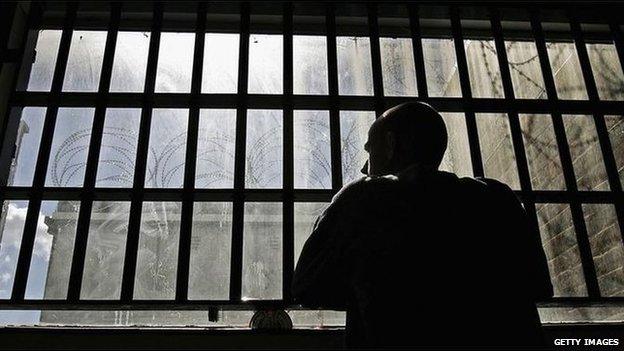Ex-judge Sir Peter Gross to head human rights law review
- Published

Former Court of Appeal judge Sir Peter Gross has been appointed to lead an independent review of the Human Rights Act.
The government wants to examine whether the 1998 act - which allows UK nationals to rely on the in domestic courts - is working effectively.
A panel of eight is expected to report its findings by next summer.
Labour called the review of human rights law "bonkers".
Justice Secretary Robert Buckland insisted that "human rights are deeply rooted in our constitution and the UK has a proud tradition of upholding and promoting them at home and abroad."
While previous Conservative governments had promised to replace the existing act entirely with a new Bill of Rights, the 2019 Conservative Party manifesto said it would only be "updated".
'Difficult cases'
The government insists it remains committed to the European Convention - which includes articles on fair trials, freedom of expression, free elections and privacy - but wants to look at its application in the UK.
It says the case law of the European Court of Human Rights in Strasbourg has evolved over time and it is right to look at how UK courts respond.
The panel, led by Sir Peter, is expected to evaluate whether UK judges are being drawn into policy matters, traditionally decided by politicians.
Ministers see the review as part of a wider constitutional reappraisal, examining the relationship between the judiciary, the executive and Parliament.
Mr Buckland recently described prisoner votes - mandated by the court in Strasbourg but opposed by the government - as a "difficult case" relating to the Human Rights Act.
And he said the Human Rights Act allowed courts to rewrite laws passed in Parliament to ensure they comply with the European Convention on Human Rights. He said this had "not always been limited to minor, uncontroversial technical changes".
He said it "is surely worth asking whether...such important and controversial decisions should be returned to Parliament".
'Bad decisions'
A separate panel is already looking at whether there is a need to reform the process of judicial review - where a judge decides the lawfulness of a decision or action made by a public body, in response to a challenge over the way the decision was made.
Campaigners say the government is already trying to place limitations on the Human Rights Act through other proposed legislation.
The civil liberties campaigning group Liberty said it was concerned the review would focus on "limiting our ability" to challenge governments "when they make bad decisions".
For Labour, shadow justice secretary David Lammy said: "It is bonkers that the government is prioritising launching an attack on human rights in the middle of the coronavirus pandemic."
He added: "There is no need for a review into the rights and freedoms that underpin our democracy and all of us enjoy."
The European Convention predates the European Union and is separate to it.